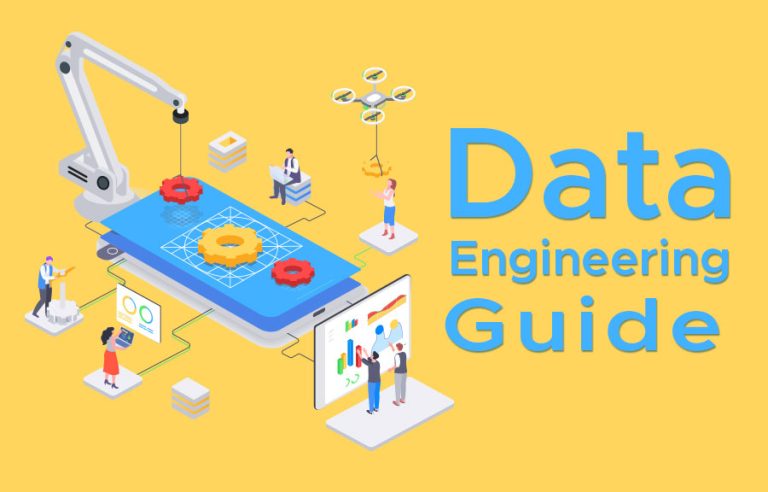In the rapidly changing suiting scene of technology, Data Science has become a critical driver behind innovation and decision-making for numerous industries. With businesses racing to get the power of data, demand for trained personnel in this field has, therefore, exploded. Though data science is often spotlighted by its glittering aspects, it must be noted that the underpinning and foundation of any endeavor to bring a useful utility from data gems or enable them to shine comes only through data engineering.
The Intersection of Data Science and Data Engineering
Data science is a multi-disciplinary approach to data. It involves statistical analysis and machine learning and includes visualization techniques for extracting information from highly complex data sets. However, a Data Science project’s ability to be successful depends on the quantity and quality of its data. Here, data engineering assumes a central role, serving as the foundation for the flourishing field of Data Science.
Data engineering is concerned with finding the most useful applications for data process, storage, and gathering. This means building and introducing structures and systems that allow data to flow freely from here to there. In the framework of teaching data science, aspiring data scientists need to understand how real-world data ecosystems work, what the discovery of new information entails, and why some things cannot yet be discovered. This requires a thorough grasp of both technical areas.
Building a Strong Foundation
Data science courses also introduce students to all stages in the data lifecycle, from collecting and storing it to analyzing and visualizing. However, students actually have to know the subtleties of data science engineering in order to make full use of the value potential of data. This involves developing data pipelines, designing databases, and standardizing procedures for processing data.
Having a good grasp of data engineering concepts requires that the person be equipped to work with various kinds of source data, as well as make sure that it is clean and processed properly before analysis. If researchers lack this basic skill in handling unorganized, inconsistent, or even partial data sets, their quality and dependability of analysis will be compromised.
Key Components of Data Engineering in Data Science Education
1. Database Management Systems (DBMS):
To be successful in Data Science, one must have a firm grasp of database management systems. Many Data Science courses that cover the field of data engineering also discuss how to get acquainted with popular DBMSs such as MySQL, Postgre SQL, and MongoDB. By learning about the subtleties of database architecture, planning for queries, and then optimizing them so that data can be retrieved as efficiently as possible from various kinds of databases to suit analytical needs. Pupils develop skills which enable them to look after their own interests easily.
2. Data Warehousing:
Learning how to set up and maintain data warehouses is also an important part of a curriculum in data engineering. This means getting familiar with data modeling and ETL (Extract-Transform-Load) procedures and putting together numerous sources of data into a comprehensive and user-friendly warehouse. To effectively work with big datasets, data scientists need certain abilities.
3. Big Data Technologies:
Knowledge of big data technology becomes essential as data volume continues to soar. Courses on Data Science that include data engineering frequently include tools like Apache Spark and Hadoop.
4. Data Pipelines:
To do good work with data, engineers build and execute data pipelines in order to optimize the flow of data from source to destination. Since data scientists must understand the design and growth of these pipelines as well, they also guarantee a steady flow of reliable information for analysis. It involves learning about workflow orchestration tools and best practices for data pipeline management.
5. Data Quality and Governance:
For data scientists, who depend on reliable and precise data for their studies, this information is essential.
Real-World Applications
It is not only an academic exercise but rather a practical requirement for success in the real world that data engineering be incorporated into Data Science courses. Supplying data scientists with timely and accurate data is also becoming an essential piece of the puzzle in many areas, including manufacturing, e-commerce, healthcare, and finances.
Imagine a situation where a medical facility wants to improve patient outcomes by using Data Science. Meaningful insight extraction would be extremely difficult for the Data Science team without this data engineering basis.
The Future of Data Science Education
In addition to educating students on today’s difficulties, Data Science courses that place a high priority on data engineering education also provide them the flexibility to adjust to changing circumstances in the future. In the highly competitive field of Data Science employment, the capacity to develop scalable and effective data structures, deal with real-time streaming data, and use sophisticated data processing techniques is becoming more and more important differentiators.
Conclusion
Comprehending data engineering is not an optional component in the field of Data Science education; rather, it is an essential prerequisite for success. Their joining forces in transforming raw data into valuable insights illustrates the symbiotic relationship between Data Science and engineering. As long as organizations continue to value data, experts with a comprehensive understanding of how Data Science and engineering work will be sought after.
Not only do such Data Science courses have the potential to shape a new generation of data scientists, but they also represent the establishment of an infrastructure required for future generations that are driven by data. Data engineering is the unsung hero in the path from raw data to useful insights, silently ensuring that the Data Science story develops smoothly and has a noticeable effect.



